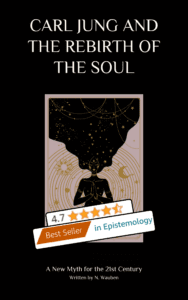A lot of the most interesting information out there is often hidden in some of the most difficult books to read. Somehow some of the best writers and philosophers do not have the easiest writing style. Perhaps this is the case because their ideas are rather complex. Even though it can be difficult to get used to reading more difficult books, it is worth the effort. In this post I will discuss five steps that have helped me a lot in the past and will hopefully help you to read more difficult books as well. At the end of this post I will also suggest some good books to start with.
Table of Contents
1. Learn more about the Background
If you have just picked up a new book, it might be tempting to start reading immediately. However, you might not know enough about the background to the book to fully grasp the ideas outlined in the text.
For example, one of my favourite books, ‘The Myth of Sisyphus’, written by Albert Camus, is difficult to read without any background information. In this case it would be worthwhile to read a bit about the philosophical school called absurdism, since the Myth of Sisyphus is an important book in this philosophical branch. If you familiarize yourself with the background it will be a lot easier to understand the book and place the ideas in their larger context.
Similarly, if you want to read a book that was written a long time ago, such as War and Peace written by Leo Tolstoy (another one of my favourites), it might be useful to familiarize yourself a bit with the period during which the story of the book is set. In the case of War and Peace, for example, the invasion of Russia by Napoleon. You will then be able to better understand what is going on in the story and why certain events occur.
2. Take Notes
One of the mistakes I made in the beginning of my reading ‘career’, was that I did not take any notes. I would read through an entire book without taking any notes, as a result I often forgot most of what the book was all about.
Especially when it comes to reading more difficult books it helps a lot to re-read some of your favourite or some of the most important parts of the books that you have already read. Nietzsche is a good example; some of his ideas resurface throughout his books, it might therefore be useful to revisit some of the notes that you made previously to familiarize yourself with his most important ideas. This might make it easier to understand his other ideas as well.

3. Find a Favourite Author and Read All of His or Her Books
Every author has his or her own writing style. If you read books from different authors, you always have to get used to the writing style typical to the author. It might therefore be easier to stick with an author that you like and read more of his books, you will notice that the more books you read written by one author, the better you will be able to understand his ideas, even if you have just encountered them for the first time.
Carl Jung is a good example; his ideas are rather complex at first, but the more you read about them throughout a few of his books, the easier it will get to understand his ideas.
4. Start your Journey with ‘Easier’ Books
If you want to start reading more difficult books it might not necessarily be a good idea to start with the most difficult books out there. If you notice that it is exceedingly difficult to understand what the book is all about you might start to lose your motivation to continue.
I had such an experience with a book called Sartor Resartus, written by Thomas Carlyle. After reading a few pages the book became too difficult to follow and I did not touch it for another two years. It was only after I had more experience with reading that I picked up the book again and was able to understand the main themes of the book a lot better.
Therefore, I would suggest doing some research before buying a book, there are a lot of good websites out there that will be able to tell you just how difficult a book is. You are also welcome to ask me for advice. One of the best ways to read more difficult books might therfore be to begin with ‘easier’ books.
5. Discuss the Books with your Friends
Different people will interpret books in different ways. As a result, it might be useful to share your experiences with others. You can learn a lot simply by sharing your own insights, while, at the same time, you might come to different insights from listening to other people’s experiences with reading some of your favourite books.
If your friends do not like to read, then you should find different friends….. Just kidding! Luckily there also a lot of ways to find people online. It can also be useful to read blogs (such as this one), in order to learn about other people’s experiences with the books that you have read.
6. Conclusions and Suggestions
How to read more difficult books? (1) Familiarize yourself with the background. (2) Take notes. (3) Read more books from the same author. (4) Start easy. (5) Discuss
As promised in the beginning of this post I will also provide you with some suggestions. If you are interested in reading more philosophical books some more background information might be particularly useful. I would suggest reading Bertrend Russel’s History of Western Philosophy. It will provide you with a great overview of the most important philosophical ideas, beginning with the start of the Greek civilization until the present day.
It might also be interesting to start with a Stoic philosopher. Stoics suggest leading a simple life, and they have also managed to write relatively ‘simple’ books. Some of the best books on Stoic philosophy are relatively easy to read while still very insightful. At the same time, their main ideas are also still relevant in more recent philosophical books. For this purpose, I would suggest Mediations written by Marcus Aurelius and Letters from a Stoic written by Seneca. If you are looking for more inspiration, then you can also have a look at my top 10 all-time favourites.

